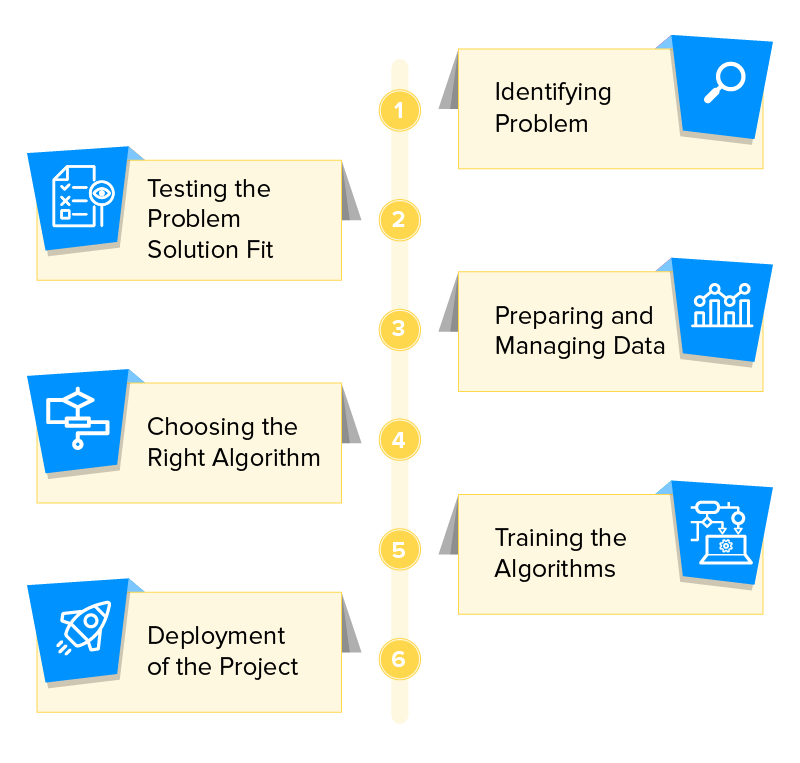AI’s ability to comprehensively manage scope of the work is significant for a successful project. Although the elite members of industry have to take on the challenges of the new technologies in the highrisk AI venture, they use the mantra “Think Big, Start Small, Iterate Often” as the main style of working. However, this philosophy not only allows us to keep expectations under control but also is flexible concerning switching to a better performance.
The major stages of effective AI scoping
Specifying the scope of an AI project is defining the range of covered and non-covered aspects which is a useful resource in managing projects by way of rationally using resources and keeping the goal at hand.
The PMBOK-s Project Management Body of Knowledge relates the six processes of scope management with the AI projects. Among these six processes, some key processes have an enhanced role. These encompass establishing the phase plan, requirements garnering, and work breakdown structure fabrication etc.
For AI projects, the Certification of Project Management AI (CPMAI) methodology emphasizes the importance of three main steps: highlighting AI-specific needs, setting up measurable targets, constant optimization, along with the agile process.
Through giving this much attention to these areas the project managers could steer AI objectives very close to strategic business targets, so that every phase will keep earning result to the business. Use our AI-powered essay writing tool to craft impressive college application essays and achieve academic success.
Think Big, Start Small, Iterate Often approach the importance of improvement to the success of a business.
The science of thinking big presents itself as a desire to plan smart and sustainable goals regarding AI integration that can revolutionize business operations or customers’ experience. Besides, the initial movement should be small, which is to make the hypothesis simpler; it is composed of several doable, executable steps.
With this approach, teams are able to work on different elements of the issue, thus engaging in near term projects that have better chances of success with lower risks.
The concept of iterative development, which is another important characteristic of the more successful projects of artificial intelligence, helps to answer this problem.
For companies to be dynamic, in changing the AI projects, the stakehalers should be able to design and implement the work to be of short term and outcome-focused, where the iterations would not extend for more than a few weeks to comply with the fast-changing scenarios.
Every one of the iterations has to be improved on the other versions and so the solution built up with each try based on the previous results from the real world experience and feedback.
Scoping properly is one of the most vital tasks for infrastructure projects.
AI project success is which can depend on how properly direction is provided. It avert such overextension that happen when project boundaries and objectives are being expanded without setting adjustment in place in terms of time, cost and resources.
Through proper compliance with suggested procedures and deliberate emphasis on relevant aspects of AI project scope management, companies can reap the maximum benefits of the AI projects incurring minimal threats from emerging technologies.
Such a strategic approach lays the groundwork for effective management of AI projects along with the integration of the projects to the strategic goals of innovation and vision for competitive advantage.
News story sourced from AI Today Apple podcasts





